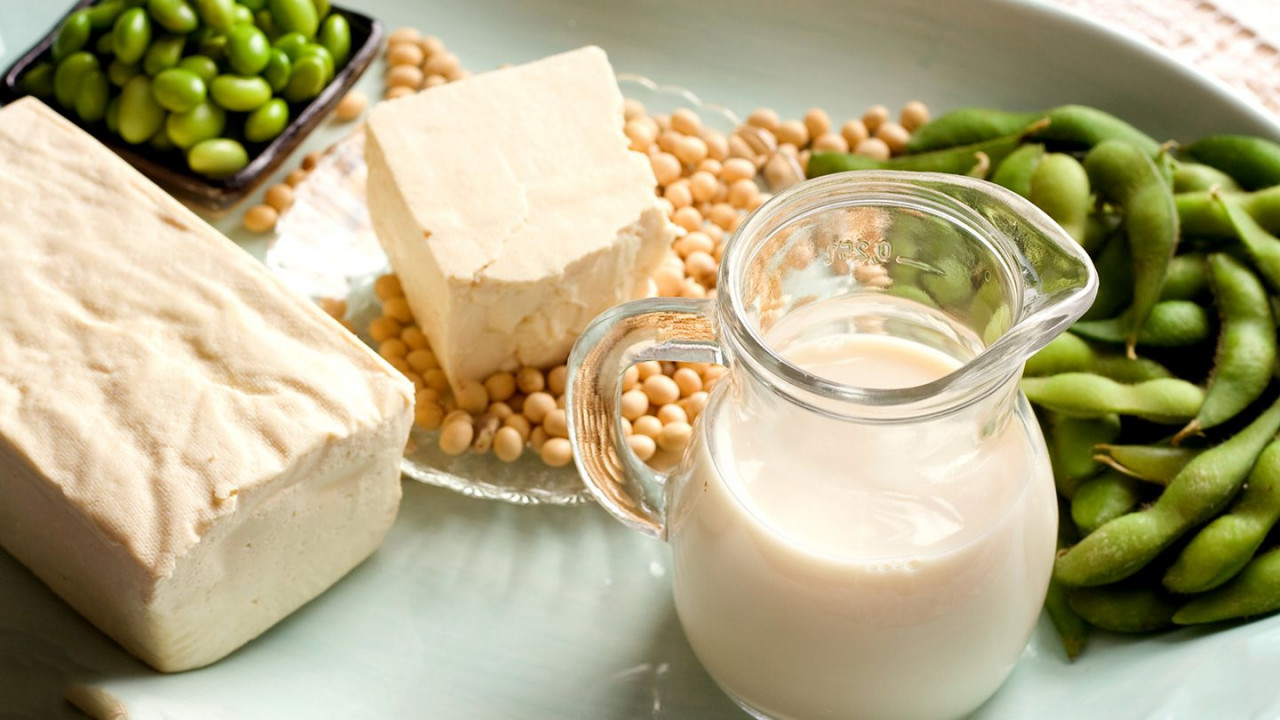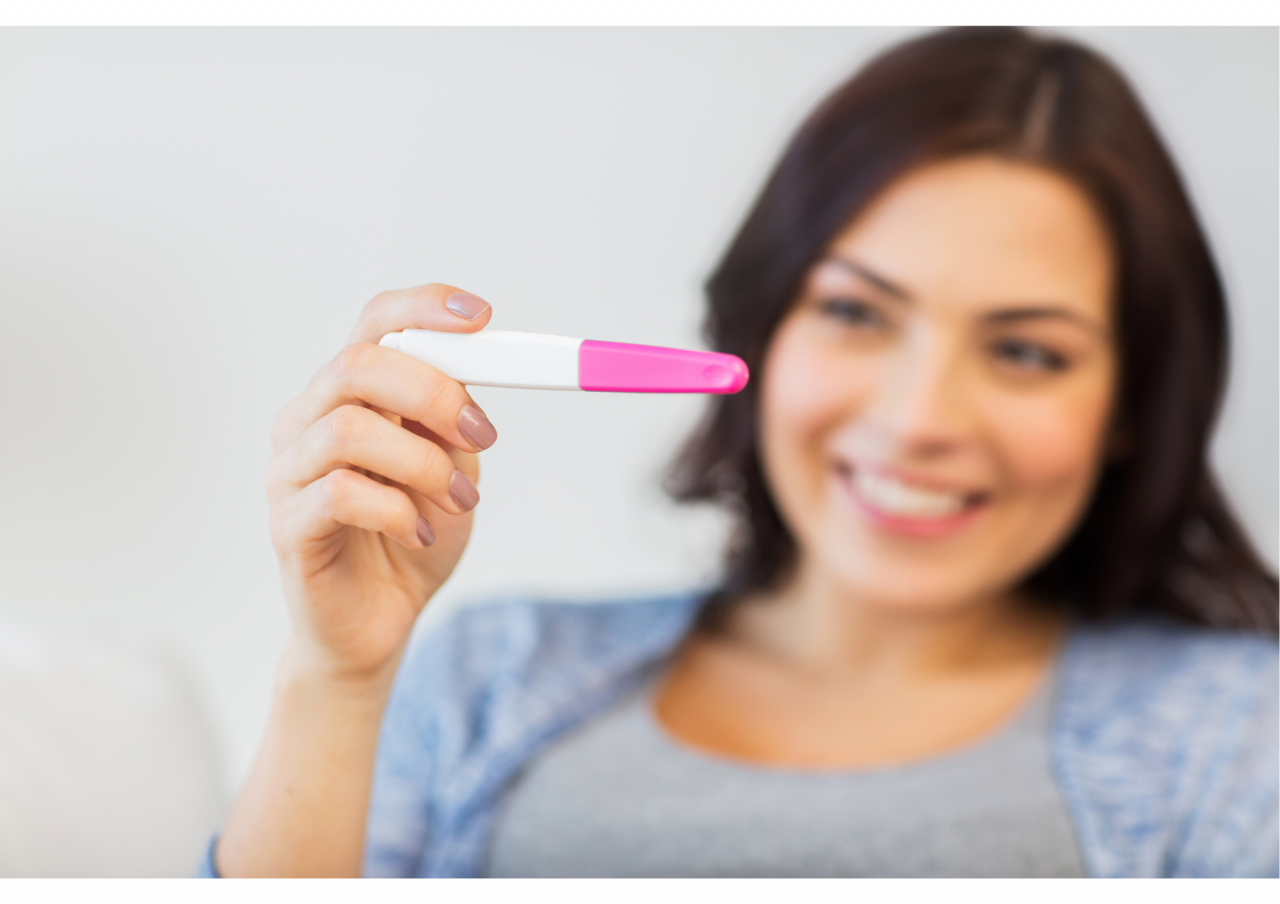How Naturopathy Can Help Women's Health: A Comprehensive Guide

Whether you're struggling with a specific health concern or simply want to improve your overall wellness, naturopathy can help. Find out how in our gu
How Naturopathy Can Help Women's Health: A Comprehensive Guide
Women face particular difficulties keeping their health and wellbeing in today's hectic and demanding society. Women's bodies experience a lot, from hormone imbalances to irregular menstruation, and naturopathy may provide a range of options to support and improve their health.
The subject of women's health is immensely intricate and complicated. It may be affected by a vast array of variables, including genetics, lifestyle choices, environmental influences, and stress levels. The holistic approach to health and wellbeing provided by naturopathy takes into account both the underlying causes of a problem as well as its manifestations. Naturopathy can assist women in achieving their utmost health and wellbeing by adressing the whole person rather than just the ailment.
Women's Hormonal Imbalances and Naturopathy

For many women, hormonal imbalances are a problem, and they can result in a variety of symptoms, from mood swings and weight gain to irregular periods and acne. Numerous therapies are available via naturopathy to assist in the regulation of hormones and address the underlying causes of hormonal abnormalities. These therapies may entail dietary adjustments, herbal treatments, and lifestyle adjustments.
Hormonal imbalances may be treated naturally and gently with naturopathic methods that are tailored to the particular needs of each patient. They are designed to boost general health and wellness while reestablishing the endocrine system's equilibrium. Naturopathy can offer a holistic approach to women's health that goes beyond symptom treatment by treating the underlying causes of hormone imbalances.
The Benefits of Herbal Remedies for Hormonal Imbalances
Women's hormonal abnormalities can be treated effectively through herbal therapies. For ages, women have taken herbs like chasteberry, black cohosh, and dong quai to promote their hormonal health. These herbs manage the body's natural hormonal cycles by controlling the production of hormones like oestrogen and progesterone.
The capacity of herbal treatments for hormonal imbalances to control the production of hormones like oestrogen and progesterone is one of their key advantages. For instance, the plant chasteberry is frequently used to control menstrual cycles and relieve PMS symptoms. It functions by raising luteinizing hormone (LH) levels and lowering prolactin levels, which can assist in balancing the body's levels of oestrogen and progesterone.
Another herb that is frequently used to treat female hormonal abnormalities is black cohosh. Hot flashes and night sweats are two menopausal symptoms for which it has been demonstrated to be particularly beneficial. By attaching to oestrogen receptors in the body, black cohosh helps control oestrogen levels and relieves symptoms.
Another herb that is frequently employed in conventional Chinese medicine to treat hormonal abnormalities is dong quai. It is frequently used to reduce PMS symptoms and to regulate menstrual cycles. Compounds found in dong quai have a structure that is comparable to oestrogen and can assist to regulate hormone levels in the body.
Red clover, maca, and ashwagandha are other herbs that can be helpful for hormone imbalances. Isoflavones, which are substances found in red clover, can help maintain a healthy balance of oestrogen levels in the body. An adaptogenic plant called maca can help balance hormones and lessen the effects of stress. Another adaptogenic herb that can help lower cortisol levels and regulate hormones is ashwagandha.
Women’s hormonal health may be supported naturally and safely using herbal therapies. They can reduce symptoms, balance hormone levels, and enhance general health. However, keep in mind that not all herbal treatments are suitable for everyone. Before beginning any new herbal remedy, speak with a healthcare professional, especially if you are on any drugs or have any pre-existing medical issues.
Diet's Impact on Hormonal Balance
Diet may have a big impact on how women's hormones are balanced. While certain meals can support the delicate hormonal balance in the body, others might upset it. For instance, diets high in sugar and refined carbs can lead to surges in insulin, leading to an upset balance of hormones. On the other hand, diets rich in protein and healthy fats can promote the health of your hormones.
For the creation and balancing of hormones, wholesome fats and proteins are crucial. The omega-3 fatty acids, which are present in fatty fish like mackerel, sardines, and salmon, are particularly advantageous for hormonal health. These beneficial fats can decrease inflammation and enhance the synthesis of sex hormones like progesterone and oestrogen.
Hormone balance relies on protein as well. A sufficient protein intake promotes hormone synthesis and assists in controlling blood sugar levels. Lean meats, fish, eggs, and lentils are all excellent sources of protein.
Consuming meals high in fiber, vitamins, and minerals can help boost hormonal health in addition to these. The body receives necessary nutrients from whole grains, fruits, and vegetables, which can also aid in maintaining hormone balance. Foods high in fibre also assist a healthy digestive system and blood sugar regulation.
Additionally, it's crucial to remain hydrated during the day. As the body depends on water to generate hormones and maintain balance, dehydration can result in hormonal abnormalities.
Overall, women's hormonal balance depends on a balanced diet. Women can promote their hormonal health and lower their risk of hormonal imbalances and associated health problems by concentrating on full, nutrient-dense diets, reducing sugar and processed carbs, and staying hydrated.
Natural Medicine for Menstrual Disorders

Another problem that frequently affects women is irregular menstruation. Menstrual abnormalities can have a considerable negative influence on a woman's quality of life, from unpleasant cramps and heavy periods to irregular cycles and PMS symptoms. Numerous approaches provided by naturopathy can help with these problems and promote menstrual health.
Naturopathy for Menstrual Irregularities
Menstrual abnormalities are commonly treated with acupuncture. Thin needles are inserted into certain spots during this traditional Chinese medicine procedure in order to boost the body's energy flow and advance recovery. It has been demonstrated that acupuncture is a highly effective treatment for a variety of menstruation problems, including unpleasant cramps, heavy bleeding, irregular cycles, and PMS symptoms.
The capacity of acupuncture to regulate the menstrual cycle is one of its advantages for menstrual abnormalities. Acupuncture works by stimulating the body, which helps control hormone production and regulate menstrual periods. By boosting blood flow and lowering inflammation, acupuncture has demonstrated an ability to help relieve period discomfort and cramps.
Additionally helpful for PMS symptoms including bloating, irritability, and mood swings is acupuncture. It functions by supporting the body's energy balance and encouraging a sensation of peace and relaxation. This can aid in lowering stress and anxiety, both of which worsen PMS symptoms.
The Benefits of Acupuncture for Menstrual Irregularities
Women's menstrual health is significantly impacted by stress. The delicate hormonal balance required for a regular menstrual cycle can be upset when the body emits stress-related chemicals like cortisol. Meditation, yoga, and massage are examples of naturopathic therapies that lower stress levels and support hormonal balance.
For instance, the practise of meditation, which involves paying attention to your breathing and mental focus, can help you feel peaceful and relaxed. Meditation can support a healthy menstrual cycle by regulating hormone production and lowering stress levels.
Another successful naturopathic method for lowering stress and boosting hormonal balance is yoga. The physical postures, breathing techniques, and meditation practises that are a part of yoga serve to lower stress levels and encourage relaxation. Forward folds and hip openers are two positions in yoga that can ease cramping and discomfort associated with the menstrual cycle.
Additionally helpful in lowering stress levels and supporting hormonal balance is massage therapy. Relaxation and reduced muscular tension from massage can help lower stress levels and support a regular menstrual cycle.
Menopause naturopathy
Although menopause is a normal part of ageing for women, it can be difficult because of a variety of symptoms like hot flashes, mood swings, and vaginal dryness. A variety of naturopathic therapies are available to support women during this transition and reduce menopausal symptoms.
Soy's advantages for menopausal symptoms
Hot flashes and night sweats are two common menopausal symptoms that soy is used as a natural treatment for. Soy includes phytoestrogens, which can mimic oestrogen's physiological actions and lessen menopausal symptoms. Tofu, edamame, and soy milk are just a few of the different ways to eat soy.
Soy has been demonstrated to offer other health advantages in addition to decreasing hot flashes and night sweats. For instance, it can aid in increasing bone density, which is crucial given that women are more susceptible to osteoporosis after menopause. Heart disease, which is the top cause of death for women in the US, can also be lowered with soy.

A versatile food, soy may be eaten in many different ways. Tofu, edamame, and soy milk are all great sources of phytoestrogens. Everything from soups and salads to smoothies and stir-fries can be made using soy.
With all it’s benefits, soy, like everything should be consumed in moderation, particularly if you have a history of breast cancer. Always consult a healthcare professional before making a drastic change in your diet.
The Role of Exercise in Menopause
Menopause symptoms can be significantly reduced with exercise. Regular exercise can help to enhance mood, decrease intensity and severity of hot flashes, and encourage better sleep. Specific exercises that might enhance menopausal health, such yoga or tai chi, may be recommended by naturopathic doctors. Exercise can also aid with mood and stress management, which is beneficial in this transitional period.

A further advantage of exercise for menopausal women is better sleep. During menopause, many women have disturbed sleep, which can result in daytime weariness and other health issues.
Certain exercise regimens may be suggested by naturopathic physicians as being especially beneficial for menopausal women. Yoga and tai chi are two examples of moderate exercises that can ease tension and increase flexibility. These exercises might also be beneficial for ladies who have tight or painful joints.
Another form of exercise that might be beneficial for menopausal women is strength training. Because women are more susceptible to osteoporosis after menopause, increasing muscle mass can assist to enhance bone density. Additionally, strength training can aid with balance and lower the chance of falling.
The management of menopausal symptoms and the promotion of general health and wellbeing both benefit greatly from exercise. For at least 30 minutes each day, menopausal-symptom-affected women should strive to engage in moderate-intensity exercise.
Natural Medicine for Pregnancy and Fertility
Countless women have serious worries about fertility and pregnancy, and naturopathy may provide a variety of therapies to enhance reproductive health. Naturopathy provides holistic and all-natural treatments for reproductive health, from preconception care to postpartum recovery.
Acupuncture for Fertility: Benefits
A common method of treatment for infertility problems is acupuncture, which aids in promoting the passage of blood and energy to the reproductive organs. Acupuncture for fertility can stimulate ovulation, control menstrual cycles, and enhance general reproductive health.

For couples struggling with fertility issues, acupuncture can be a valuable treatment option. Fertility acupuncture involves the insertion of tiny needles into specific points on the body with the goal of promoting the flow of blood and energy to the reproductive organs.
Menstrual cycle control is essential for obtaining and sustaining a healthy pregnancy, and fertility. Acupuncture can assist boost the flow of blood and energy to the reproductive organs, which can enhance the uterine lining's quality and raise the likelihood of a successful implantation.
Fertility acupuncture can enhance general reproductive health in addition to promoting ovulation and menstrual management. Acupuncture has been demonstrated to improve the thickness of the uterine lining and increase blood flow to the uterus. Additionally, it can aid in lowering pelvic inflammation, which has been linked to infertility.
Nutrition's Effect on Fertility
Given that particular foods and minerals are known to improve reproductive health, nutrition can have a substantial impact on fertility. Naturopathic physicians could suggest particular dietary modifications, such as consuming more fruits and vegetables, less coffee, and avoiding processed foods.
Antioxidants, which are found in abundance in fruits and vegetables, can help shield the body's cells against deterioration and enhance general health. Additionally, antioxidants can assist to enhance egg quality and raise the likelihood of successful fertilisation.
Reduced caffeine consumption may be advised by naturopathic physicians. High caffeine use has been linked to lower fertility and a higher chance of miscarriage. Caffeine should be consumed in moderation, with the recommended daily dosage being no more than 200 milligrams, or about one 12-ounce cup of coffee.
A significant dietary modification for improving fertility is staying away from processed foods. Frequently heavy in sugar, salt, and harmful fats, processed meals can cause hormone imbalances and inflammation. It is advised to put more of an emphasis on entire meals like lean protein, whole grains, and healthy fats like those found in avocados and nuts.
To enhance fertility, naturopathic doctors could also advise particular foods and substances. Folic acid, for instance, is crucial for women who are trying to get pregnant as it can help prevent birth abnormalities. Omega-3 fatty acids can enhance egg quality and lower inflammation, which makes them crucial for fertility.
FAQs:
Is natural medicine safe for women?
Yes, as long as a licenced and trained naturopathic doctor performs the treatment, naturopathy is safe. Natural and non-invasive, naturopathic therapies seek to promote the body's inherent ability to heal itself.
What relief does naturopathy offer for menstrual cramps?
By treating the underlying cause of pain, such as inflammation or hormone imbalances, naturopathy can ease menstrual cramps. Herbal medicines, dietary modifications, and stress management strategies are possible treatments.
Can naturopathy aid in infertility treatment?
By treating underlying conditions that may be causing reproductive problems, such as hormone imbalances or nutritional deficiencies, naturopathy can help with infertility. Acupuncture, dietary modifications, and stress management strategies are among possible treatments.
Do insurance policies cover naturopathic treatments?
Depending on the individual insurance plan and the state where the patient resides, naturopathic therapies could be reimbursed. To find out whether they are covered, patients should contact their insurance company.
The comprehensive and natural approach provided by naturopathy to women's health addresses the underlying causes of an illness as well as its symptoms. Naturopathy can offer efficient and secure treatments to assist women's health and wellbeing, from hormonal abnormalities through monthly irregularities and menopause. Women can take charge of their health and attain maximum wellbeing by working with a trained and certified naturopathic doctor.
Our team of skilled professionals at The Health Collective includes naturopaths, acupuncturists, nutritionists, and psychologists who are committed to assisting women in achieving optimum health.
CLAIM YOUR $50 VOUCHER AT THE HEALTH COLLECTIVE
Fill out the form below
For New patients to The Health Collective only.
One voucher per person for select services including Chinese Medicine, Acupuncture, Dietetics, Nutrition, Massage.

 DAMIAN POUSTIE Poustie
DAMIAN POUSTIE Poustie 
